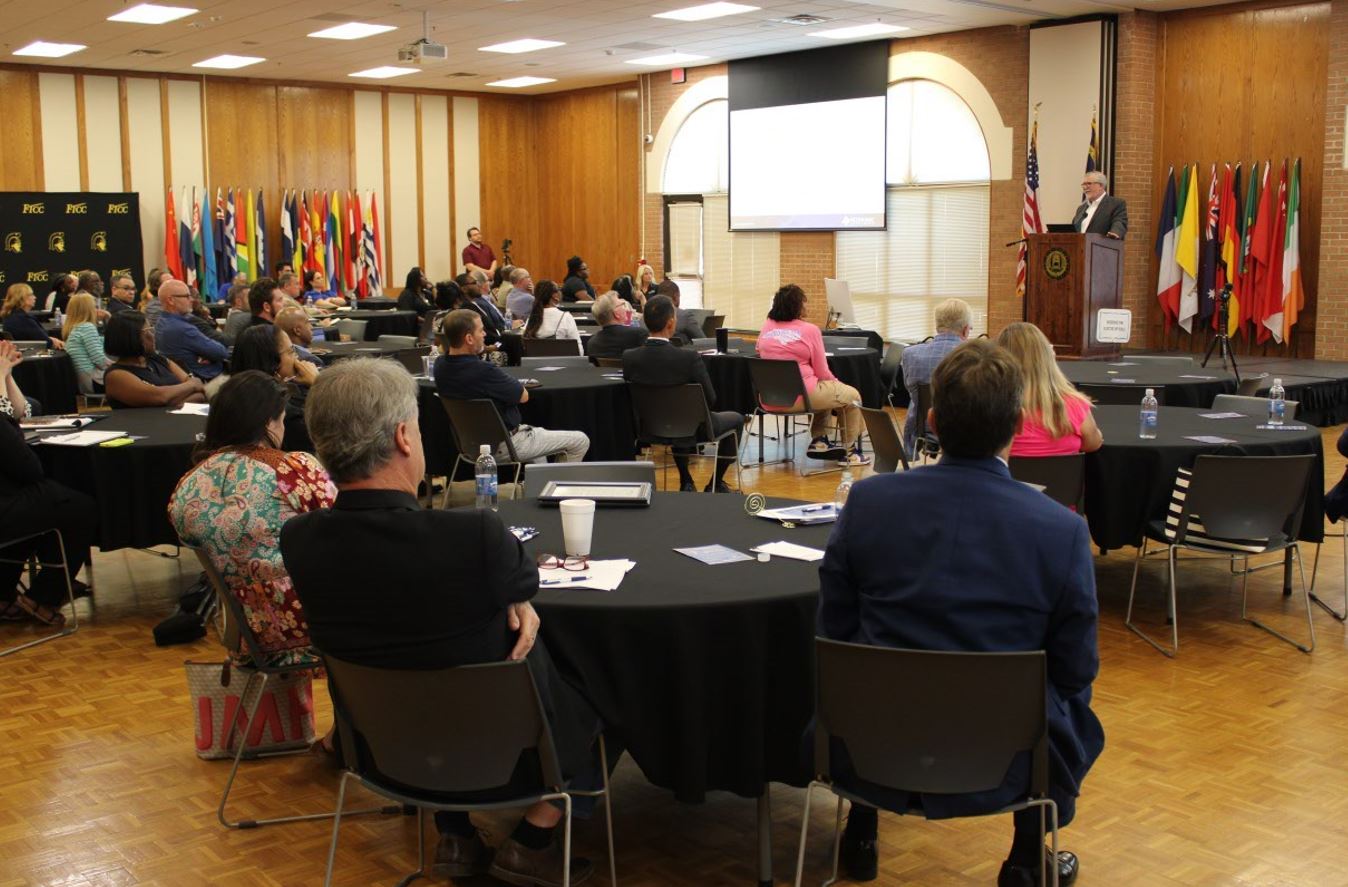
Today, the Fayetteville Cumberland County Economic Development Corporation (FCEDC) gathered some of the key leaders across a number of various industries within Fayetteville and Cumberland County for their Next Generation Workforce Presentation.
Hosted at the Tony Rand Student Center located at Fayetteville Technical Community College, the event was a chance for area leadership to learn about the economic standing of the community compared to the state and nation as a whole.
The presentation was led by Ted Abernathy, managing partner for Economic Leadership which serves as an economic development and strategic planning consultancy working to help places, organizations and leaders be more competitive, more collaborative and more successful.
Throughout the presentation, Abernathy shared data collected by Economic Leadership including federal, state data and stakeholder responses gathered through partnering with the FCEDC to collect survey responses from local stakeholders.
Key highlights of the presentation include:
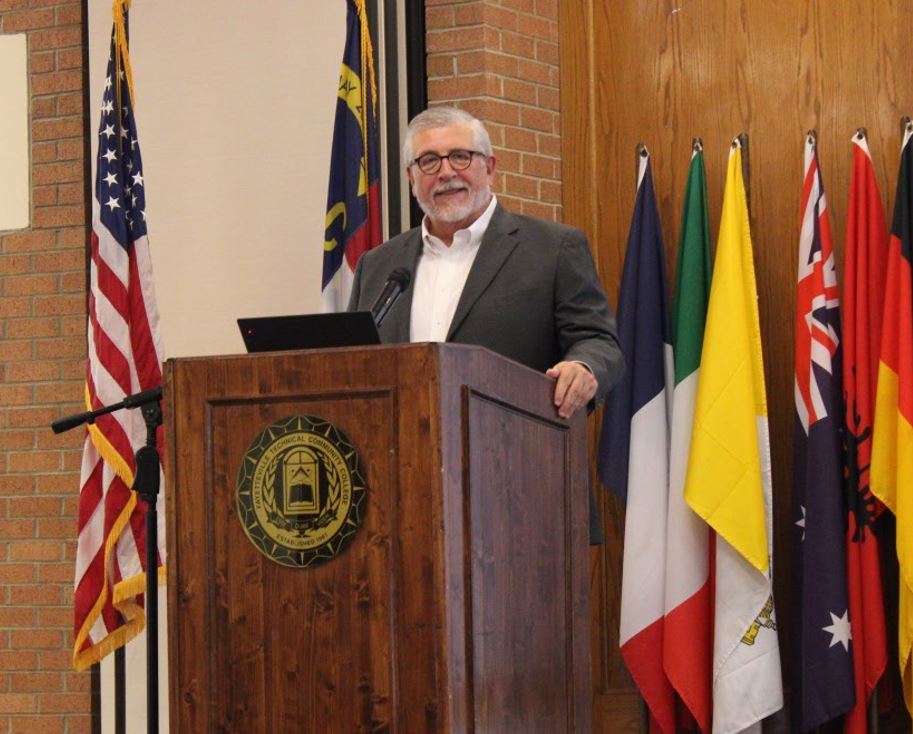
Fayetteville’s K-12 Education system, crime and community appearance were significant barriers to attracting and retaining talent.
Soft skills are needed:
There was a consensus that the local workforce in general was not prepared in basic soft skills. This fact is made worse by high entry level turnover rates experienced by employers.
It was also noted that all non military specific employers that required skilled and advanced skilled employees were not able to find them locally.
In particular, manufacturing and distribution companies struggled to find entry level workers with basic technical skills and management level workers.
According to feedback from stakeholders, the Community College system was mentioned several times as an asset for technical skill development of specific skills, but employers say they are hampered by the lack of skills possessed by local youth and young adults entering their programs.
Addressing workforce needs:
Three areas were highlighted as needs by Abernathy to address workforce needs:
Labor force participation rate:
Turnover rates by county:
Occupation Group:
Occupations with highest turnover rates
Population and Workforce in Cumberland County:
Occupations where foreign born workers make up more than 75% of all workers include:
Occupations where foreign born workers make up 40% to 70% of all workers include:
Committing in Cumberland
Abernathy shared data on what occupations included the highest rate of commuters into the county:
A Laborshed is defined as the area or region from which an employment center draws its commuting workers.
-A total 45-minute labor shed for Cumberland County was 473,610 people with commuters coming from as far away as Johnston County and as close as Bladen, Robeson, Moore, Harnett, Hoke and Lee Counties.
In summary,
-Jobs have been growing in Cumberland County, but labor force growth has been flat
-Labor force participation is low, but improving slightly
-Educational attainment is low
-Self employment and work from home levels are low but growing
-Foreign born labor force is growing and critical in some occupations
-Cumberland County has dynamic in- and out-migration
-The 45 minute labor shed is about half a million workers
Emerging Economy:
-Post pandemic, automation and society changes are eliminating many low wage, low skill jobs according to collected data.
-Fort Liberty currently dominates the labor demand in the area
-Demand for tech and manufacturing workers is growing
-Annual earnings have begun to increase
-There is a good demand for skilled workers in auto and aircraft mechanics, dental and nursing assistants, software developers and computer operators.
Wages:
-Compared to other counties across the state, 42% of households in Cumberland County earn under $50,000 per year.
-70% of jobs in Cumberland County pay between $30,000- $75,000 annually
-10% of jobs in Cumberland County pay between $75,000- $100,000
-8% of jobs in Cumberland County pay over $100,000
-12% of jobs in Cumberland County pay under $30,000
Housing:
-The typical home value in the Fayetteville MSA is $231,000
-The typical Home value in Cumberland County is $207,686
-Cost burdened households were presented based on types of housing:
-29.2% of Cumberland County households were homeowners with a mortgage
-7.5% of Cumberland County households were homeowners without a mortgage
-63.3% of households were renters
In summary,
-Population and labor force has stagnated
-Low educational attainment levels have attributed to a concentration of mid skill, mid-wage jobs
-Rent burdens are contributing to economic hardships
-Lower disposable income impacts other sectors of the Quality of Living (QOL) economy (retail, restaurants, entertainment).
-While discussing these data sets, Abernathy was hopeful about the improvements that can help make the area more attractive to businesses.
-Abernathy also went over the collected responses from a series of questions to address that were offered to stakeholders.
-That data was compiled into strategic areas of focus for the next five years recommended for leadership. These included:
Metrics of success recommended to track included population growth, labor force growth, growth in degrees and credentials, enrollments in targeted programs, average wages in new job rankings.

“I think that your issues are fairly straightforward. They're not nuanced too much. So what do you do about it? If you want a better workforce system, a more perfect workforce system in America, you need data continuously so that you can make adjustments and policy decisions, and you need the capacity to make those improvements. You also need to resource those things that are making an impact,” said Abernathy. “There is nothing that you can't do with self determination moving forward. And the citizens of Fayetteville want to have pride in their community and want to live here. Obviously, they made that choice and want their community to grow. And there are very specific things you can do on that. It takes groups to work together. In communities, there are too many pieces, so you have to agree to work together and collaborate and for strategy, strategy is just about choices.”
The FCEDC is looking for community, industry and business owner support to make improvements to the employment and business landscape in the area.
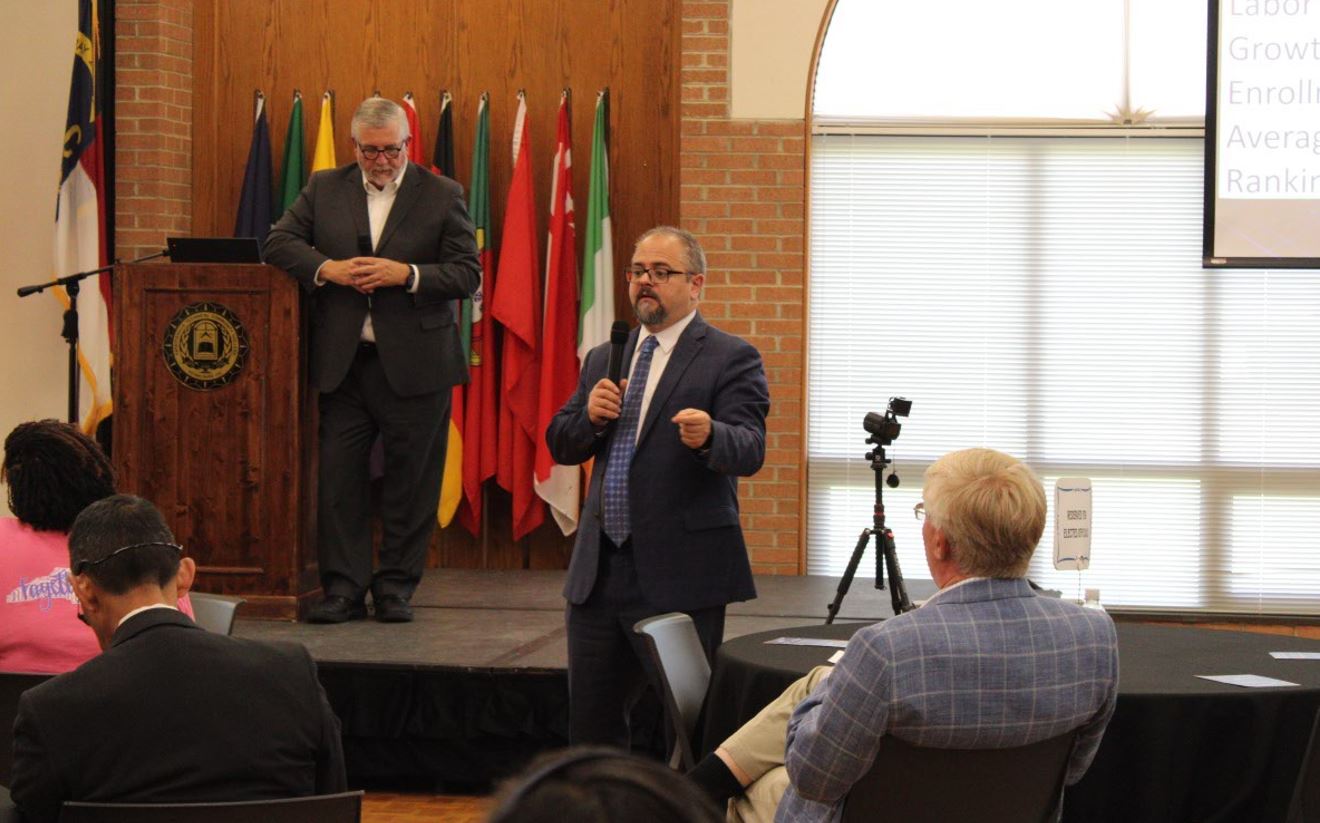
“We heard our challenges, but we did hear real positive things that are happening all around our community. We saw the industries that are growing here as we move towards technology, towards better wages, advances in medical care. We've got partners here all willing to come together,” said FCEDC President & CEO Robert Van Geons. “I think the number one recommendation that was listed if we're going to invest in this is, to find a way to for put a formal structure around that, and to that point about accountability with individuals whose primary job it is to make these connections happen and to help accelerate and grow the great things that are going on here.”
The FCEDC is looking for input from key community members to help piece together the next steps. Community members interested in getting involved are encouraged to reach out to NextGen@FCEDC.com.
“We're asking you if you want to be part of the conversation the price of admission is action. Are you willing to actively participate in driving this forward? So please email us your thoughts, your concerns, your ideas and how you want to help. We are in ‘Can Do Carolina’ for a reason. This is a can-do city,” shared Van Geons.
A full copy of Abernathy’s presentation will be made available to the public through the FCEDC in the coming weeks.
The City of Fayetteville is preparing a recording of today’s presentation it can be watched in full on the City's YouTube page here.

Owners Dana and Tracy Horne planted their vineyard in 2009. In 2019, they introduced their u-pick vineyard, and visitors loved the addition. They’ve also added a 4,608 sq ft. venue available to rent for events. Photo by Emily Grace Photography.Twiste
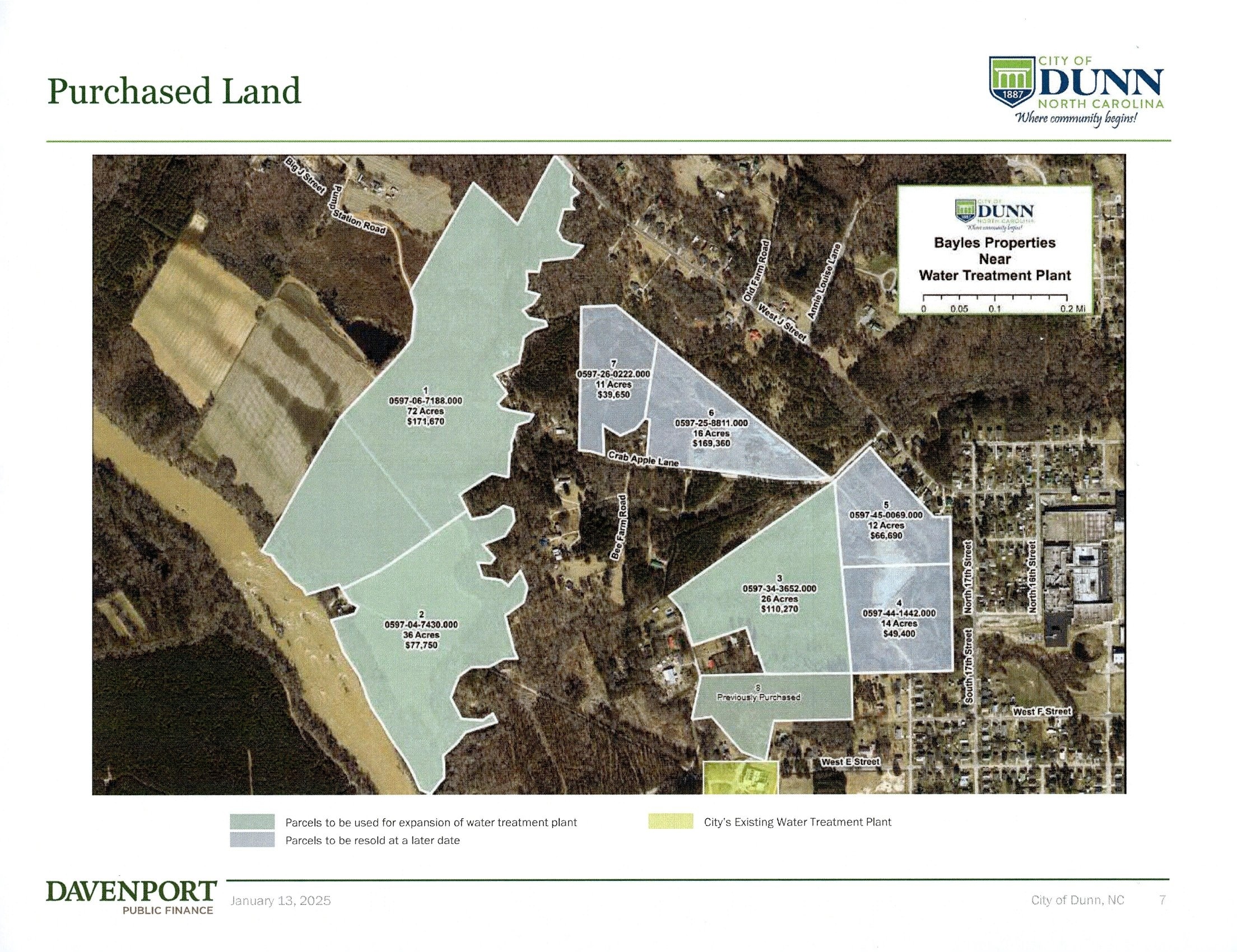
Mayor Elmore saw the necessity for this land acquisition when he first took office six years ago. The land owner recently came around to negotiations on the condition the sale was for all of his parcels. This is more land than the City of Dunn curren
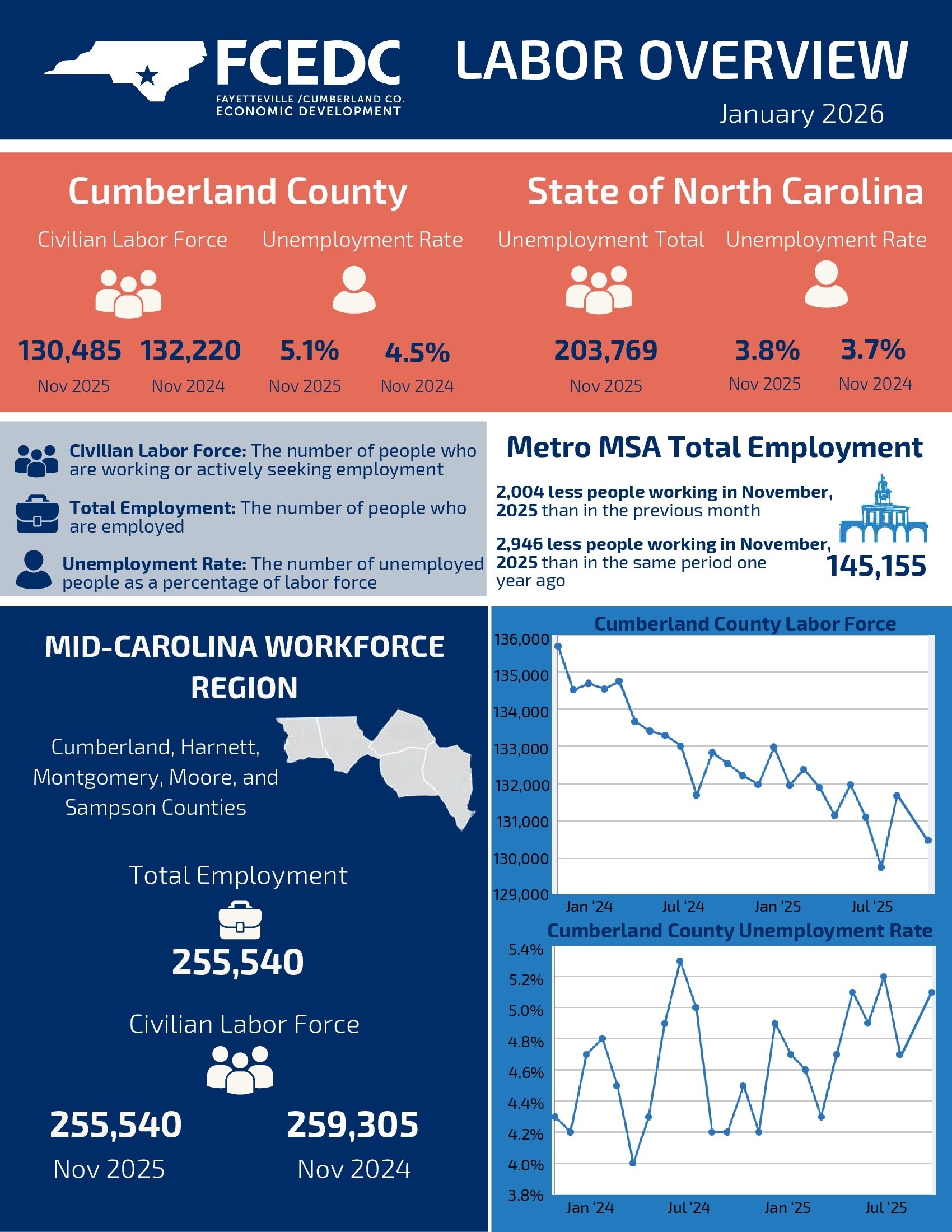
While the weather outside is cold, the local job market is hot. Fayetteville employers continue to bring on additional talent across a variety of industries.Quality employment opportunities are available at companies across Fayetteville and Cumberlan